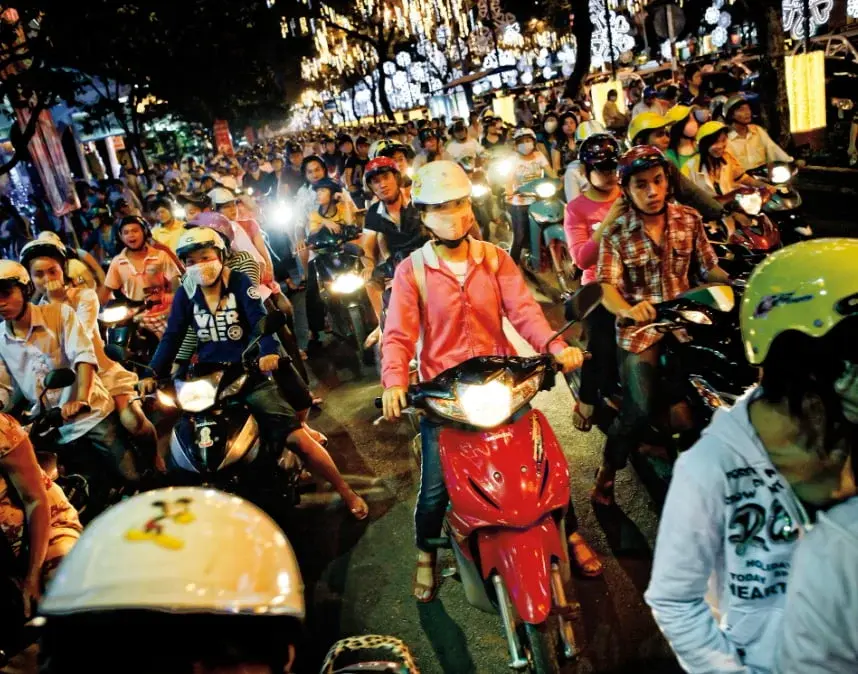Tesla’s Full Self-Driving (FSD) technology, aiming for a significant launch in China in 2024, is set to encounter substantial challenges, especially due to the country’s extensive use of electric scooters (e-scooters). With over 300 million e-scooters on Chinese roads, adapting FSD to these conditions presents a considerable hurdle.

Complex Road Conditions in China
The complexity of China’s road conditions is a major factor. Unlike the relatively straightforward road systems in the United States, China’s roads are often crowded and lack dedicated lanes for non-motorized vehicles. For instance, about 30% of roads in central Guangzhou do not have specific lanes for bicycles and e-scooters. This results in e-scooters frequently using motor vehicle lanes, creating a challenging environment for autonomous driving systems like Tesla’s FSD.
XPeng’s Perspective on Autonomous Driving
Li Liyun, head of autonomous driving at XPeng, highlighted the difficulties that Tesla’s FSD will face in China. He emphasized the need for smart driving systems to be optimized for the prevalent e-scooter usage. XPeng, a leading Chinese electric vehicle (EV) manufacturer, has already tested its smart driving capabilities in cities like Nanning, Guangzhou, Kunming, and Nanchang. Their Navigation Guided Pilot (XNGP) has successfully handled complex scenarios involving e-scooters, demonstrating the importance of local adaptation.
XPeng’s experience and advancements in autonomous driving provide valuable insights. The company is set to release an updated version of XNGP in July, which will integrate end-to-end large model technology for enhanced performance. This update aims to address the specific challenges posed by the complex and crowded urban environments in China.
Market and Regulatory Context
China’s electric scooter market is vast, with 350 million e-scooters and 42.28 million units produced in 2023 alone. Tesla is preparing to register its FSD software with Chinese authorities, targeting an official launch in 2024. A pilot program is currently being conducted in Shanghai’s Nanhui New Town, involving ten Tesla vehicles.
He Xiaopeng, XPeng’s CEO, has tested Tesla’s FSD in the United States and acknowledged its impressive performance in Silicon Valley and on highways. However, he pointed out the significant challenge posed by fast-moving e-scooters, which often travel against traffic in China. This insight underlines the need for Tesla to adapt its technology to the unique conditions of the Chinese market.
The successful adaptation of Tesla’s FSD technology in China hinges on its ability to manage the widespread use of e-scooters and navigate complex road conditions. As the competition in the global self-driving market intensifies, the ability of smart driving systems to optimize for local conditions will be a critical factor for success.


Leave a Reply